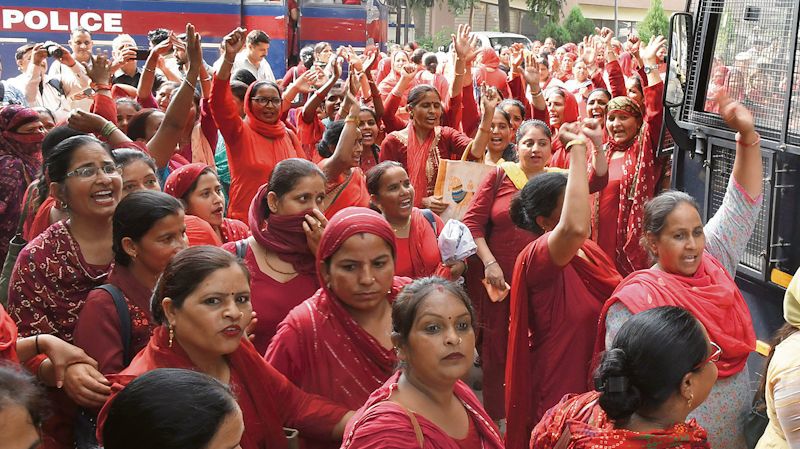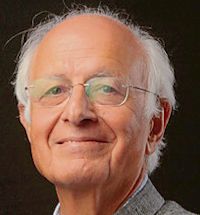
Neglect: It is a shame that frontline caregivers in communities are paid so little. File photo
Arun Maira
Former Member, Planning Commission
LEAVE it to the market — this is the solution provided by economists for all complex problems, even social ones. Economists have their own theory of markets. What they mean is freedom for capitalist markets, where money is the measure of value, where money can be accumulated as capital by whosoever makes profits, and the owner of capital has the right to use it as he wishes, including the right to use it for accumulating even more capital.
All organisations have a social side to them. They require both vertical and lateral threads to be strong and woven together to make the fabric of society strong.
The answer to the question “How is the market doing?” in capitalist circles is to report how Dow Jones, Nasdaq and Sensex did overnight. In India in the 1980s, this circle was a very small one, mostly stockbrokers in Mumbai for whom the BSE (Bombay Stock Exchange) was the market. When Indian borders were thrown open in the early 1990s to foreign capital and American ideas of capitalism, the financial sector in India expanded with new breeds of professionals: venture capitalists, investment bankers and financial advisers. Bengaluru and Gurugram provided them with an expanding market for clients. Alongside the spread of capitalist markets, wiggling graphs of numbers in stock markets became de rigueur backdrops for the business media, even while discussing broader social issues.
A market is an ancient idea. People traded many things in markets centuries before the advent of modern stock markets and financial trading. They traded their produce, their work and many things that money cannot buy. There was a give-and-take of value in these trade relationships, and money was not the currency in all cases, as philosopher Kojin Karatani explains in The Structure of World History: From Modes of Production to Modes of Exchange.
Social and economic institutions are formed with vertical and horizontal structures. Power relationships are vertical ones. Patriarchs, monarchs, dictators, CEOs of corporations and even heads of elected governments are expected to maintain order within their jurisdictions. The power of the state arises from an exchange between the ruled and their rulers: those ruled are given peace and order in return for obedience to their rulers. Along the horizontal dimension are systems of exchange among members of a community. Trade is a horizontal system. People trade many things among themselves in their families, communities and society. The value of what they trade in both vertical and horizontal exchanges cannot be measured precisely by money. For quantitative economists, everything must have a monetary value to be computable in their mathematical equations. Anything else, though real, like sources of social and political power, which cannot be measured precisely, is pushed out of their models as messy externalities interfering with good economics.
This, says Nobel Laureate economist Angus Deaton in a recent paper published by the International Monetary Fund, is the dilemma for 21st-century economists. Critical of his fellow economists, he says: “We are often too sure that we are right. Economics has powerful tools that can provide clear-cut answers, but that require assumptions that are not valid under all circumstances. The profession knows and understands many things. Yet today, we are in some disarray. We did not collectively predict the financial crisis and, worse still, we may have contributed to it through an overenthusiastic belief in the efficacy of markets, especially financial markets, whose structure and implications we understood less well than we thought.”
The modern corporation is designed to maximise returns for its financial investors. They are guaranteed limited legal liability for consequences of their actions for society and the environment. Competing to attract more investors, governments make it easier for them to make more profit by allowing corporations to take and discard workers on short-term contracts with no social security, and to weaken unions. Community lands are converted into corporate property to be managed more efficiently for profit. Women are plucked out of families and planted in factories for economic efficiency. GDP grows, but the environment and society suffer.
We must learn to value the care people give others. It is a shame that ASHA (Accredited Social Health Activist) and anganwadi workers, frontline caregivers in communities, are paid so little, and that domestic workers, almost always women, are paid very little too, with no social security, and are often shabbily treated.
All organisations have a social side to them. They require both vertical and lateral threads to be strong and woven together to make the fabric of society strong. Relationships between rulers (whether elected or dictators and monarchs) and citizens are vertical structures. Lateral bonds between people themselves are horizontal ones. When the horizontal structures are weak and the fabric is strained, citizens rely on the vertical ones to keep everyone and everything together.
The Pew Research Centre surveyed citizens of many countries in 2023 to gauge how many prefer authoritarian rulers to multi-party democracy. The numbers choosing dictators will dismay democrats. In the Global South, India toppped (85 per cent), ahead of Indonesia (77 per cent), South Africa (66 per cent) and Brazil (57 per cent). In the West, it was the UK (37 per cent) and the US (32 per cent), which are significant numbers too. China and Russia were not surveyed.
In times of uncertainty, people yearn for certainty. They follow godmen, dictators and wealthy technologists because these people claim they know the truth and have the power to apply it. Citizens of democratic countries have lost trust in their governments’ economic policies. Average incomes may be rising, but the very rich are becoming much richer faster. Large corporations and financial institutions are compelling governments to set the rules of the game in their favour.
The world needs more of caring and less of competing. The purpose of business corporations and armies is to make more profit and gain more power. The world will be improved for everyone by organisations whose purpose is cooperation, not by organisations driven by competition. Women are natural family builders and system facilitators, whereas men are brought up to compete. Rather than men teaching women to think like men, join armies and compete with them in hierarchies of formal corporations, men must learn the caring ways of women to make the world better for everyone.
Join Whatsapp Channel of The Tribune for latest updates.



























